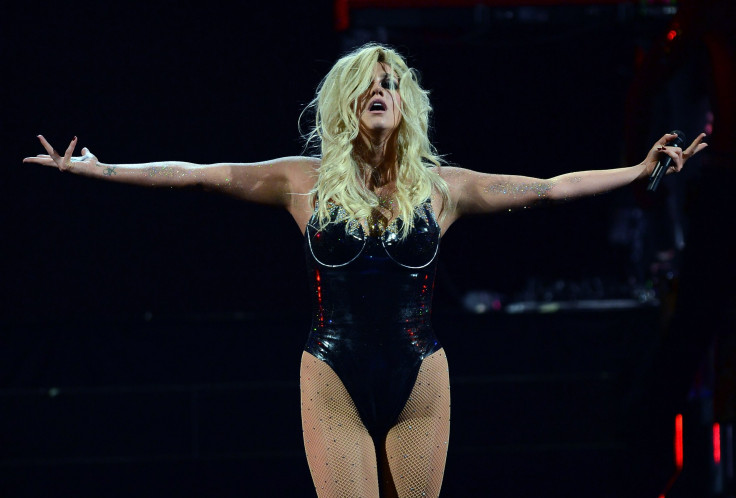Kesha Sony Lawsuit: Amid Dr. Luke Abuse Allegations, Pop Star Appeals To Judge’s Conscience

With few bullets left to fire in her legal battle to separate herself from the star producer Lukasz “Dr. Luke” Gottvald, pop sensation Kesha Rose Sebert filed an injunction Friday that essentially appeals to the judge’s conscience. The singer, best known for hits such as “Tik Tok” and “Die Young,” filed documents asking for permission to record music for any label besides Gottvald’s label, Kemosabe, which is owned by Sony Music Entertainment.
“Kesha now faces an abysmal decision,” Kesha’s attorney, Mark Geragos, wrote in a statement submitted to the court Friday. “Work with her alleged abuser ... or idly and passively wait as her career tick-tocks away. She is precluded from working in perpetuity, because the term of her contract can only be satisfied if she records three more albums. Kesha needs the Court’s assistance.”
In 2014, Kesha filed a suit against Gottvald, alleging the producer had sexually abused her, coerced her to take drugs and drink alcohol while she was underage and threatened to destroy her career if she spoke up. Gottvald responded by quickly countersuing for defamation, and both suits are making their way through the courts. Gottvald’s suit will be heard first in New York, due to a provision in Kesha’s contract with Kemosabe.
Misaligned Interests
Well before the suit was filed, Kesha and Gottvald had clashed over the musical direction of her career, with the producer holding the singer’s favorite songs off her albums and barring her from working with other collaborators, including an album-length project between Kesha and the Flaming Lips that was scuttled last year.
With both sides locked in a legal dispute, Kesha has made a number of attempts to find other musical partners, including reaching out to other labels and even asking Sony if she can work with anyone other than Gottvald.
According to the injunction, Sony has not budged. “Sony specifically will not work with Kesha unless she agrees to work with Kemosabe,” Geragos’ statement reads.
The same injunction also notes that other labels are gun-shy about the prospects of working with an artist signed to a deal with one of the most powerful record labels in the world. Geragos presented signed affidavits from other labels confirming that they will not work with her, partly to avoid being accused of tortious interference.
Money On The Table
The subtext of Sony’s response to Kesha’s pleas may be that it values its relationship with Gottvald, a Grammy-nominated producer who has made dozens of Billboard-charting hits for artists -- including Pitbull, Kesha, Kelly Clarkson, Katy Perry and Flo Rida -- more highly than it values its relationship with Kesha.
“Money is going to rule the day,” Mark Quail, a music and entertainment lawyer who added that he has not read Geragos’s injunction, told International Business Times.
The track record of artists getting out of the contracts they’ve signed with record labels is not good. Nearly three decades after Holly Anderson, the lead singer of Frankie Goes to Hollywood, got out of a contract that a judge deemed unfair and one-sided, there are barely any examples of artists successfully extricating themselves from their record deals.
For Kesha fans who simply want the artist to have the chance to make music again, there is a twisted kind of silver lining in Sony’s refusal to let Kesha out of her deal. “Major labels will look at it and go, 'Is this something we can still make money on?'” Quail said. “If the answer is no, they let him go.”
© Copyright IBTimes 2025. All rights reserved.





















